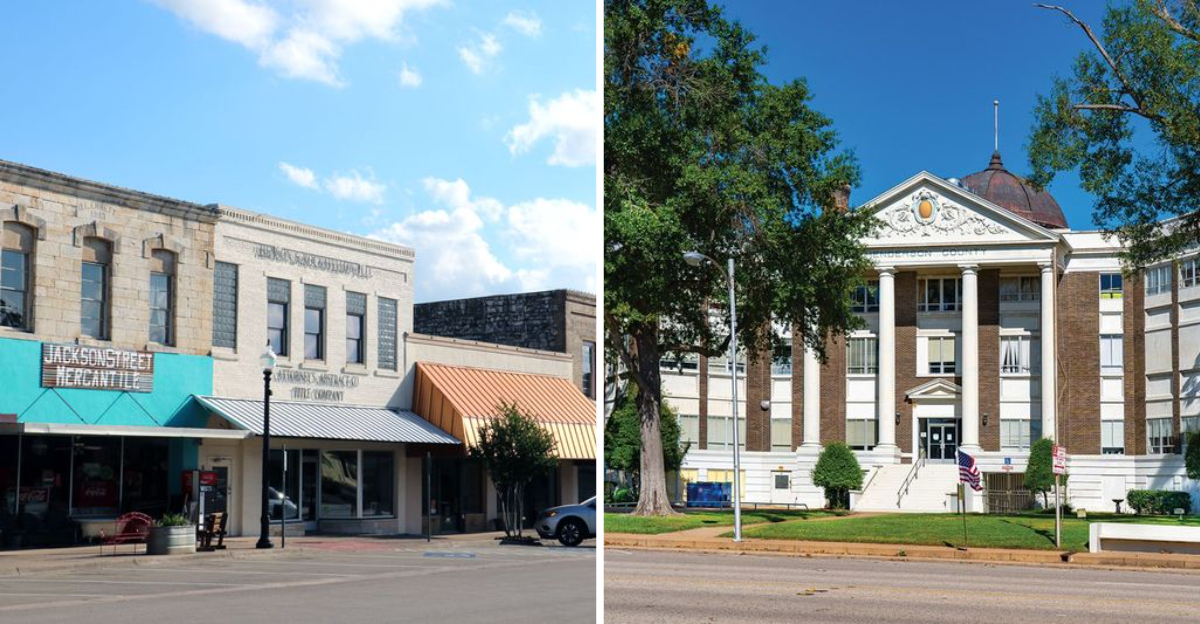
Texas lake towns once offered peaceful retreats where families could enjoy fishing, boating, and simple country living away from city life. These hidden gems featured crystal-clear waters, friendly locals, and quiet streets that moved at their own unhurried pace. But over the years, something changed as these serene communities became hotspots for weekend warriors and party-seekers from nearby urban centers.
1. Peaceful Community Bonds Fractured
Once-tight communities where neighbors knew each other by name have unraveled as investment properties replace family homes. Long-term residents find themselves living next to revolving doors of weekend visitors with no stake in local issues or traditions.
School enrollments dwindle as housing becomes unaffordable for young families, while community events that defined these towns for generations struggle to maintain relevance. The Friday night fish fries, annual fishing tournaments, and holiday boat parades that once united residents now compete with pop-up parties and commercial events catering to tourists.
Local businesses that served residents for decades – hardware stores, family restaurants, tackle shops – close their doors, replaced by souvenir shops, upscale bars, and rental companies. The social fabric that took generations to weave has become frayed, leaving many longtime residents feeling like strangers in their hometowns.
2. Natural Beauty Trampled Underfoot
Shorelines once dotted with native wildflowers and grasses now show visible erosion from increased foot and boat traffic. Weekends bring armadas of watercraft churning up sediment, disturbing fish habitats, and creating noise that drives away wildlife that locals once cherished seeing.
Trash collection systems designed for small communities buckle under mountains of disposable containers, plastic bags, and abandoned inflatables. The crystal waters that gave these lakes their reputation now frequently contain harmful bacteria levels from overloaded septic systems and irresponsible waste disposal.
Dark skies that once showcased spectacular star-gazing opportunities glow with light pollution from new developments and all-night gatherings. The natural cycles that residents understood and respected – nesting seasons, fish spawning periods, quiet winter recoveries – have been disrupted by year-round recreational demands with little regard for environmental balance.
3. Small-Town Infrastructure Overwhelmed
Roads built for local traffic now jam with weekend warriors, creating gridlock in towns with just one main street. Emergency services stretched thin during peak tourist seasons mean longer response times for everyone, whether visitor or year-round resident.
Water systems engineered for communities of hundreds strain to support thousands during holiday weekends. The result? Low pressure, occasional outages, and accelerated infrastructure aging that small town budgets can’t handle. Meanwhile, parking becomes a premium commodity, with visitors abandoning vehicles on lawns, blocking driveways, and occupying spaces meant for local businesses.
Internet and cell service, already challenging in rural areas, become nearly unusable during peak periods when networks flood with vacation-goers posting their adventures. The quaint small-town experience that attracted visitors in the first place disappears under the weight of crowds that the towns were never designed to accommodate.
4. Housing Market Skyrockets Beyond Reach
Modest lakeside cottages that sheltered generations of the same family now sell for astronomical sums to investors who immediately convert them to short-term rentals. Young people who grew up in these communities find themselves priced out, unable to afford even starter homes in the places their families have lived for generations.
Property taxes in these Texas towns rise dramatically as valuations increase, creating hardships for retirees and those on fixed incomes who bought their homes decades ago. The rental market for local workers virtually disappears as landlords realize they can make a month’s rent in a single weekend through vacation platforms.
New construction focuses almost exclusively on luxury homes and rental properties rather than affordable housing for the workforce that supports tourism. Teachers, healthcare workers, and service industry employees face increasingly unsustainable commutes from affordable areas, further eroding the community’s foundation and self-sufficiency.
5. Cultural Identity Fades Into Commercial Backdrop
Local diners serving generations-old recipes and hosting morning coffee groups now compete with trendy establishments catering to Instagram aesthetics rather than authentic flavors. The fishing guides who once shared local knowledge and stories passed down through families have been replaced by commercial operations that treat the lake as merely a recreational resource.
Historical markers and sites that told the story of these communities receive less attention than new attractions designed for quick thrills and social media moments. Annual Texas traditions rooted in local history and culture – from founders’ day celebrations to harvest festivals – either transform into commercialized spectacles or fade away entirely.
The unique accents, expressions, and customs that distinguished these lake towns from one another blend into a generic ‘vacation destination’ identity.
Dear Reader: This page may contain affiliate links which may earn a commission if you click through and make a purchase. Our independent journalism is not influenced by any advertiser or commercial initiative unless it is clearly marked as sponsored content. As travel products change, please be sure to reconfirm all details and stay up to date with current events to ensure a safe and successful trip.